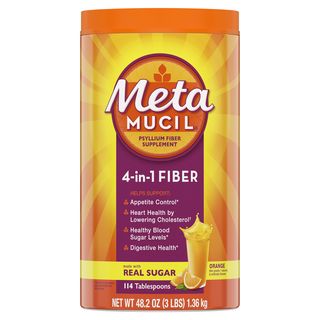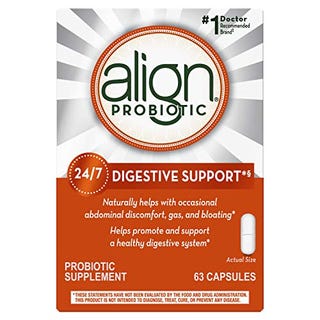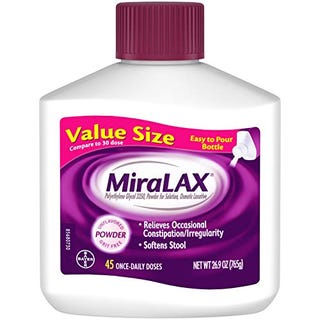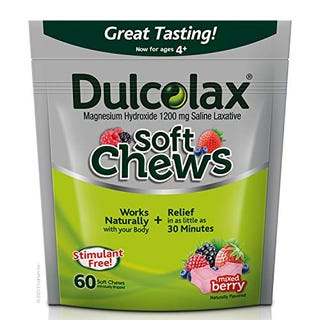How To Create Bowel Movement
You've been pooping so long that it's easy to take the simple-but-necessary act for granted. Not being able to go at any given moment probably won't wreck your day, but it can leave you feeling uncomfortable, bloated, and, well, crappy.
It's important to remember that there is no standard frequency for bowel movements. Some people poop every day, while others poop every couple of days. Both are normal and as long as you feel good, it's not much to worry about.
However, you're probably well aware of how often you typically have a bowel movement, so when you're suddenly struggling to go, it's kind of a big deal.
There can be plenty of reasons for why you can't poop, ranging from not having enough fiber or water in your diet to taking a new medication, says Karen WeiRu Lin, M.D., assistant dean for global health and a professor of family medicine and community health at the Rutgers Robert Wood Johnson Medical School in New Jersey.
While chronic constipation can be a sign of an underlying health condition, like irritable bowel syndrome, that's probably not what's going on if you only struggle to poop occasionally. Luckily, the following home remedies can help get things moving again, according to doctors.
1. Up your fluid intake.
"Water is really important for relieving constipation," says Rudolph Bedford, M.D., a gastroenterologist at Providence Saint John's Health Center in Santa Monica, Calif. If you're just not a "water person," Dr. Lin recommends trying to get enough through other liquids, like brothy soups or water-rich produce like watermelon. Just take a pass on sugary drinks, as they could make the problem worse.
The actual amount of liquids you need varies by person but the U.S. National Academies of Sciences, Engineering, and Medicine recommends that women have at least 11.5 cups of fluids (including fluids from water, other liquids, and food) a day, and that men strive for 15.5 cups.
2. Eat more fiber-rich foods.
Dietary fiber is a type of carbohydrate that slows digestion by adding bulk to your diet, which helps you feel fuller, faster—and it helps get things moving down there. "It keeps stools soft and moving through," Dr. Bedford confirms.
Pro tip, per Dr. Lin: Make sure you're drinking plenty of water with your fiber for maximum benefits. Good sources of fiber include whole grains, nuts and seeds, and plenty of fruits and vegetables. Prunes, pears, apples, oats, and lentils are all great examples of especially helpful foods to relieve constipation.
3. Consider a fiber supplement.
If you need a strong hit of fiber ASAP, Dr. Lin suggests taking a fiber supplement. Ideally, go for one that's dissolved into water, like psyllium (a.k.a. Metamucil). The water part is essential, Dr. Bedford says: Dietary fiber absorbs water, making your poop bulkier and therefore easier to move along.
4. Enjoy a cup of coffee.
The caffeine in coffee "increases the contractions of muscles within your gut to push things through," Dr. Bedford says. It also contains liquid, which can be beneficial. Too much coffee can dehydrate you, though, so Dr. Bedford recommends drinking water along with your coffee for maximum effect. Not a coffee drinker? Strong tea can have a similar effect.
5. Get moving.
Exercise is important for staying healthy overall, but it can also stimulate blood in the muscles in your gut, causing them to contract more and push poop along, Dr. Bedford says. "Movement and exercise is always great for combatting constipation," he says. If you've been on the sedentary side lately (haven't we all?), try going for a fast walk or do a full-on workout.
6. Have some healthy fats.
Foods that contain healthy, unsaturated fats like avocados, nut butter, olives, and oily fish can help speed things up in your GI tract. "These fats lubricate the lining of the gut, allowing stool to move through a lot easier," Dr. Bedford says. One cup of avocado also contains 10 grams of dietary fiber, making it a good option to try.
7. Sip on warm water.
Water in general is crucial for relieving constipation, but warm water can also be a good tactic. It "stimulates the inner lining of the gut," Dr. Lin says. That can cause contractions down there to push your stool along.
8. Load up on probiotics.
Probiotics (the good bugs in your gut) are live microorganisms that play a key role in how your body digests food. Just know this: They won't work immediately. "It is not like Tylenol for fever—it does not work in 20 minutes," Dr. Lin says. "It takes time for good bacteria to digest food piece by piece, and might take more than a day." Still, Dr. Bedford says, "it's going to change the bacterial imbalance within your gut. That may also allow for things to move through your system a lot easier." Consider loading up on probiotic-rich fermented foods, like Greek yogurt or fresh sauerkraut, or pop a quality probiotic supplement to support your overall gut health.
9. Try using heat therapy.
Dr. Lin has two recommendations when it comes to heat therapy. First, try drinking a cup of warm water, wait 30 minutes, and then gently massage your lower abdomen to try to stimulate the area. If that doesn't seem to help, take a hot shower, with the water concentrated on your lower back.

Psyllium Powder Fiber Supplement
Metamucil amazon.com
$33.99

24/7 Digestive Support Probiotic Supplement

Laxative Powder for Constipation Relief
MiraLAX amazon.com
$24.48

Soft Chews Saline Laxative, Mixed Berry
10. Consider a stool softener.
Stool softeners can come in capsule, tablet, liquid, or syrup form, and they work by softening your poop to make it easier to pass through. While they can do the trick, Dr. Bedford recommends taking more natural approaches first, as some softeners can cause uncomfortable side effects. "The preference before taking a stool softener is drinking liquids and taking in more fibers," he says. If you do end up trying this tactic, keep in mind that it only takes one to three days of use for the softener to kick in. Do not take them for longer than a week unless you get the OK from a doctor, per the U.S. National Library of Medicine.
11. Try an osmotic laxative.
An osmotic (better known as a laxative) is a type of medication that draws water into your bowel to unblock you. Polyethylene glycol (MiraLAX) and bisacodyl (Dulcolax) are popular options. Again, while taking an osmotic can help get things moving, Dr. Bedford recommends focusing on your water and fiber intake first.
If you've tried these home remedies to make yourself poop and you're still struggling, or if you find that you're regularly constipated, Dr. Bedford says it's time to check in with your primary care physician. They can do an evaluation to see what might be behind your inability to poop—and give you guidance on how to solve the problem.
Go here to join Prevention Premium (our best value, all-access plan), subscribe to the magazine, or get digital-only access.
FOLLOW PREVENTION ON INSTAGRAM
Korin Miller Korin Miller is a freelance writer specializing in general wellness, sexual health and relationships, and lifestyle trends, with work appearing in Men's Health, Women's Health, Self, Glamour, and more.
This content is created and maintained by a third party, and imported onto this page to help users provide their email addresses. You may be able to find more information about this and similar content at piano.io
How To Create Bowel Movement
Source: https://www.prevention.com/health/a35415960/how-to-make-yourself-poop-fast/
Posted by: sullivanwouniend1968.blogspot.com

0 Response to "How To Create Bowel Movement"
Post a Comment